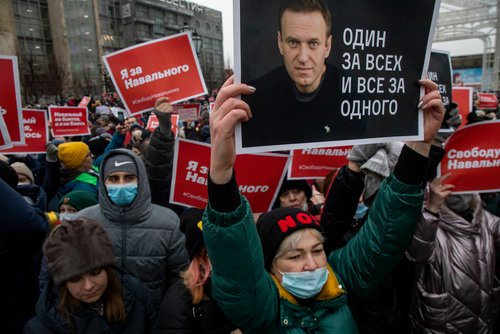Brussels (Brussels Morning) Komanda 29, an association of human rights lawyers, has suspended operations after coming under pressure from the Russian government. The group, which is renowned for its ties to the opposition figure Alexei Navalny, opted to shut down temporarily after its website had been blocked at the request of Moscow prosecutors.
The association defended Navalny’s anti-graft NGO in legal proceedings that concluded when Navalny’s organisation was declared to be “extremist”, with the government preparing to outlaw its activities and bar its members from standing for office.
Human rights attorney Ivan Pavlov, the Komanda 29 leader, reportedly has been under criminal investigation since April. He is reportedly suspected by Russian authorities of having leaked classified information related to one of his clients.
In a move ascribed to government pressure, the organisation has been accused of having ties with the Czech-based nonprofit Společnost Svobody Informace, which Moscow had previously put on the list of “undesirable organisations”. Moscow prosecutors have cited this in requesting that the Komanda’s website be blocked.
Komanda 29 claims it has no ties with the Czech organisation, but says, nevertheless, that it has ceased operations for the time being. It now expects that the next move by the security services will probably include the criminal prosecution of Komanda and its supporters.
Navalny’s NGO has likewise suspended operations as it awaits the final verdict as to its “extremist” status. It is doing so in order to protect its supporters and employees from possibly facing jail time and having their assets frozen should they become suspected of continuing with their work.
The pressure on Komanda 29 appears to be part of a wider pattern of crackdowns on critical and independent voices in Russia ahead of next September’s parliamentary elections. A large number of independent organisations, politicians, activists and journalists face accusations of participating in a foreign-backed conspiracy to destabilise the country.
The EU and the US continue to demand Navalny’s release from prison, after the Kremlin critic was jailed for supposedly breaching his suspended sentence terms. Navalny failed to report to prison authorities while being treated in Germany (with President Vladimir Putin’s authorisation) for a poisoning believed to have been administered by Russian intelligence operatives.




